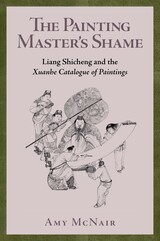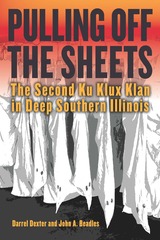
States are inherently and fundamentally geographical. Sovereignty is based on control of territory. This book uses Song China to explain how a pre-industrial regime organized itself spatially in order to exercise authority. On more than a thousand occasions, the Song court founded, abolished, promoted, demoted, and reordered jurisdictions in an attempt to maximize the effectiveness of limited resources in a climate of shifting priorities, to placate competing constituencies, and to address military and economic crises. Spatial transformations in the Song field administration changed the geography of commerce, taxation, revenue accumulation, warfare, foreign relations, and social organization, and even determined the terms of debates about imperial power.
The chronology of tenth-century imperial consolidation, eleventh-century political reform, and twelfth-century localism traced in this book is a familiar one. But by detailing the relationship between the court and local administration, this book complicates the received paradigm of Song centralization and decentralization. Song frontier policies formed a coherent imperial approach to administering peripheral regions with inaccessible resources and limited infrastructure. And the well-known events of the Song—wars and reforms—were often responses to long-term spatial and demographic change.

Overturning the long-held assumption that the Xuanhe Catalogue of Paintings was the work of the Northern Song emperor Huizong (r. 1100–1126), Amy McNair argues that it was compiled instead under the direction of Liang Shicheng. Liang, a high-ranking eunuch official who sought to raise his social status from that of despised menial to educated elite, had privileged access to the emperor and palace. McNair’s study, based on her translation and extensive analysis of the text of the Xuanhe Catalogue of Paintings, offers a definitive argument for the authorship of this major landmark in Chinese painting criticism and clarifies why and how it was compiled.
The Painting Master’s Shame describes the remarkable circumstances of the period around 1120, when the catalogue was written. The political struggles over the New Policies, the promotion of the “scholar amateur” ideal in painting criticism and practice, and the rise of eunuch court officials as a powerful class converged to allow those officials the unprecedented opportunity to enhance their prestige through scholarly activities and politics. McNair analyzes the catalogue’s central polemical narrative—the humiliation of the high-ranking minister mistakenly called by the lowly title “Painting Master”—as the key to understanding Liang Shicheng’s methods and motives.


Richard Davis has expertly crafted a stirring narrative of the last years of Song, focusing on loyalist resistance to Mongol domination as more than just a political event. Davis convincingly argues that Song martyrs were dying for more than dynasty alone: martyrdom can be linked to other powerfully compelling symbols as well. Seen from the perspective of the conquered, the phenomenon of martyrdom reveals much about the cultural history of the Song.
Davis challenges the traditional view of Song martyrdom as a simple expression of political duty by examining the phenomenon instead from the perspective of material life and masculine identity. He also explores the tensions between the outer court of militant radicals and an inner court run by female regents—tensions that reflect the broader split between factions of Song government as well as societal conflict. Davis reveals the true magnitude of the loyalist phenomenon in this beautifully written, fascinating study of Song political loyalty and cultural values.
READERS
Browse our collection.
PUBLISHERS
See BiblioVault's publisher services.
STUDENT SERVICES
Files for college accessibility offices.
UChicago Accessibility Resources
home | accessibility | search | about | contact us
BiblioVault ® 2001 - 2024
The University of Chicago Press









